We hope you all join us in celebrating Founding Partner Peter S. Sachs’ 50-year anniversary of practicing law in the State of Florida! Peter became a member of The Florida Bar in 1973. He and his fellow 50-Year members were honored at the 2023 Florida Bar 50-Year Member Luncheon at The Boca Raton on Friday, June 23, 2023. The special event took place during The Florida Bar Annual Convention, which was held from June 21st-24th in Boca Raton. Earlier this year, Peter also celebrated 50 years since graduating from Fordham Law School with other members of the Class of ’73, including Senior Judge Loretta Preska of the U.S. District Court for the Southern District of New York (SDNY), at their reunion in New York City. “It is difficult to comprehend that 50 years have elapsed since taking my oath as a Member of the Florida Bar. I am grateful that along the way I received guidance and mentorship from lawyers and judges that I admired as consummate and ethical professionals. Looking back, what I cherish most are the friendships that I made with other lawyers, jurists, and the many clients that I was privileged to represent. I am blessed to still be practicing law and look forward to mentoring the next generation of attorneys, including those at my law firm and two children who followed in my footsteps, one of whom is a Family Law attorney and the other who works in the legal department of The Disney Corporation.” – Peter Sachs Peter founded Sachs Sax Caplan P.L. in 1979. He is Board Certified in Condominium and Planned Development Law by The Florida Bar and through the years has handled a multitude of matters related to community associations (condominiums, cooperatives, homeowners, master and country clubs). He is considered one of the pioneers in the development of community association law and has earned a reputation as a staunch consumer rights advocate. Peter’s notable work includes obtaining significant settlements on behalf of each of the four Century Village communities and the Kings Point complex in Delray Beach. He also created and represents Kings Point Recreation Corporation, the...

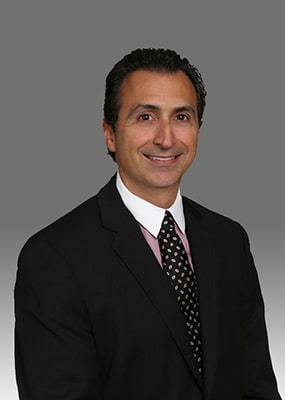
Leasing a home or office can be an overwhelming process. There are many factors a prospective tenant should take into consideration before signing a lease agreement. The following are some of the more important questions that you should consider before signing a lease agreement: #1 - What utilities or amenities are included or not included in the rent cost? In order to ensure that there are no unexpected additional costs, the lease should clearly define the responsibilities of the parties. For instance, clarify which party is covering amenities like parking, utilities, cable, lawn care, storage, exterminator fees, etc. #2 - How long is this lease term? Make sure the lease term is for the timeframe you expect to stay at the premises. However, in unforeseen circumstances, you may be forced to either cut short your stay or extend your stay. One solution may be to add a provision to the lease agreement allowing you to terminate your lease early upon the payment of an early termination fee (typically 2 months of rent). Another solution may be adding an extension right (at the same or similar base rent) allowing you to extend the term of the lease by another year. #3 – Is Subletting allowed? Subletting involves renting out your space temporarily to another person, while the lease still stays in your name. This is helpful if you want to avoid breaking the lease early, or if you are not going to be in your space for extended periods of time. #4 - What is allowed when it comes to making alterations? Make sure the lease includes your ability to perform minor alterations, such as hanging items on the walls, together with such other alterations that you may desire, such as painting the interior or changing the carpeting. #5 - When is a landlord allowed to enter the premises without an invitation? Except when there is an emergency, the lease should require a landlord to give at least 24 hours’ notice of their intent to enter the premises. It would also be helpful to restrict the landlord’s ability to enter to a...

Hunters Run Property Owners v. Centerline Real Estate, LLC The firm has struck another blow in support of the right of homeowners’ associations to enact and enforce mandatory country club membership requirements for their members. The Atlanta-based Eleventh U.S. Circuit Court of Appeals, in a complex, 22-page opinion written by Circuit Judge Robert Luck of Miami, affirmed a federal trial court decision in the Southern District of Florida that the exclusive Hunters Run Country Club in Delray Beach had every legal right to enforce its mandatory country club membership provision. The decision was rendered in Case No. 20-11800, Hunters Run Property Owners Association, Inc. v. Centerline Real Estate, LLC. It was the latest of a number of cases across Florida in which unit owner-members of a country club community have brought lawsuits attacking provisions in the declaration of covenants and restrictions requiring homeowners to join their country club. SSC has always been out front in support of homeowners associations in residential communities that require mandatory membership in the country clubs that are within the community. In the March 30 Hunters Run case, SSC principal Robert Rivas, a Florida Bar Board Certified Expert in Appellate Practice, conducted the litigation in both the trial and appellate courts. Notably, Rivas was also lead counsel almost a decade ago in another major appellate precedent establishing the legal propriety of mandatory country club membership provisions. In Harris v. Aberdeen Prop. Owners Ass’n, Inc., 135 So. 3d 365 (Fla. 4th DCA 2014), an appeal Rivas conducted, the Fourth District Court of Appeals of Florida held that a challenge to a provision in a common interest community’s declaration of covenants and restrictions must be filed before the expiration of a five-year statute of limitations. The Harris case involved a mandatory membership amendment and its precedent has been used again and again in untimely attacks on such provisions. Robert Rivas is a Principal in the Tallahassee office of Sachs Sax Caplan, P.L. Previously Mr. Rivas had a career as an award-winning reporter and editor for major newspapers before he entered law school in 1988. He made Law Review and graduated summa cum laude from Nova Law Center in 1991.

Robert Kennedy once said, “It is the essence of responsibility to put the public good ahead of personal gain.” For Florida condominium and homeowners’ association officers and directors, this fiduciary responsibility to the members of your association is no different. You are not simply a figurehead! Rather, you are a leader, entrusted with the task of acting in the best interests of the association and its members. This means that you must exercise the utmost loyalty, good faith, and due care in carrying out your responsibilities. Loyalty means that you must put the interests of the association and its members before your own personal interests. This can be a difficult task, especially if you have close relationships with certain members, vendors or suppliers. However, you must always remember that your primary responsibility is to the association, and that any conflicts of interest must be disclosed and dealt with appropriately. Good faith means that you must act honestly and with integrity at all times. This includes making decisions based on what you believe is best for the association, rather than your own personal gain. You must also keep the interests of all members in mind, not just a select few. This can be challenging when you are faced with competing demands or limited resources. However, you must always strive to make decisions that are fair and reasonable, and that reflect the values and goals of the community at large. Due care means that you must exercise reasonable care and diligence in carrying out your responsibilities. This includes being informed about the issues facing the association, and seeking out expert advice when necessary. You must also be familiar with your association’s governing documents, rules and regulations, and applicable laws (Chapter 718, Chapter 720), in order to ensure that you are acting in accordance with their requirements. One of the most important aspects of your fiduciary duty as an officer and/or director of a community association is to maintain the financial health of the association. This means that you must ensure that the association is operating within its budget, and that all expenses are...

For many years, under HOA law (Chapter 720, Florida Statutes), there was a requirement that HOAs take nominations from the floor at their annual meeting. This put many people at disadvantage because if there was another nomination process prior to the annual meeting, people could put their name in advance and campaign for votes to the disadvantage of those who would later nominate themselves from the floor. With condominium associations, as distinct from HOAs, you were not permitted to nominate yourself from the floor as the statute (Chapter 718, Florida Statutes) prohibits floor nominations. However, with HOAs, there was always a requirement to allow such nominations. Several years ago, Chapter 720 was amended to state that if an HOA’s election process took nominations prior to the annual meeting, you would not be required to take nominations from the floor on the date of the meeting (Section 720.306(9)(a)). The statute does not really define what it means by “election process”. Therefore, our interpretation up until recently had been that the board could adopt procedures or rules identifying an election process to take nominations prior to the annual meeting. Recently, some recent arbitration decisions ruled that the HOA’s election process must actually be spelled out in the HOA’s governing documents, such as the bylaws. Therefore, if you are an HOA, and you wish to be able to have nominations taken prior to the annual meeting so that you are not required to take additional nominations from the floor, you must make sure that your bylaws or your governing documents spell that process out expressly, as opposed to only having board-adopted election procedures. Since we are entering into the time of the year where many HOA’s are going through their elections, it is our recommendation that you consult with your HOA attorney to make sure that your governing documents and your election materials have a pre-call for candidates. If it is not, we recommend that you amend your documents to confirm that your election process is run in accordance with Chapter 720 and with your HOA documents moving forward. Steven G. Rappaport is a...

Today, I’d like to discuss something called covenant enforcement. Covenant enforcement is when an association must enforce the rules, regulations and restrictive covenants that are contained in an association’s declaration, whether it's a declaration of condominium or a declaration of covenants and restrictions – and there are many ways of doing so. However, one of the biggest complaints that I've heard over the years is that associations have no teeth to enforce their documents, which is not true. Associations do have teeth – they do have the ability to enforce. The issue primarily is being willing to do what it takes to enforce the documents. Avenues to take include fining, suspending usage rights or potentially suspending voting rights. In extreme cases, you're talking about going to mandatory mediation, which is now required under the homeowner's association statute, Section 720.311 of the Florida Statutes. It's also one of your options under the condominium statute, Section 718.1255. So, you do have some options for covenant enforcement. What we always need to be mindful of when enforcing an association’s rules is that everybody must be treated the same under similar circumstances. You don't want to be in a position where you are trying to enforce your rules and regulations against a unit owner or an occupant, and they raise a defense of selective enforcement. Selective enforcement means that you have enforced the same covenant against one person but not another under similar circumstances. We always must compare apples to apples and oranges to oranges. Other defenses include waiver and estoppel (which are really two sides of the same coin). For example, if approval was obtained for an architectural change, and the owner expended money and time and contractors in getting the work done, the association can’t come back and change its mind later. The approval has already been relied upon. We never want these kinds of valid defenses to be able to be raised, so we need to be mindful of what we're doing and how we're doing it. We always need to make sure that we're even handed, that we're consistent, and that...
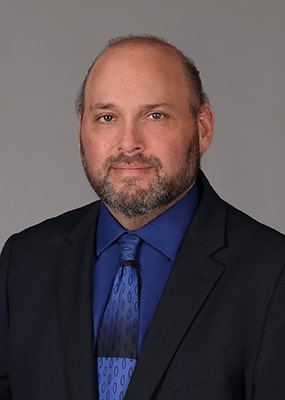
As written about extensively, last year Governor DeSantis signed legislation into law that requires condominiums and cooperatives, three (3) stories or higher: (i) to conduct milestone inspections, (ii) conduct a structural integrity reserve study, and (iii) based upon those studies, to implement and collect mandatory reserves from each unit owner. These requirements become effective December 31, 2024. The well-intended purpose of this legislation is to prevent another Surfside tragedy by forcing condominiums and cooperatives to collect reserves to address structural issues over time as opposed to waiving reserves and delaying the need for collection of funds to address repair problems in a timely manner. While Florida’s Condominium and Cooperative Acts always required the Board of Directors to calculate reserves, members were allowed by majority vote to waive or reduce reserves which resulted in many associations not having the funds to address expensive and necessary repairs when required. As new legislation, there are some glitches that have caused confusion for those condominiums and cooperatives that are less than three stories. Whereas the law is clear that effective December 31, 2024, condominiums, and cooperatives that are three (3) stories or higher must conduct inspections, obtain reserve studies, and implement and collect mandatory structural reserves, questions have arisen if the mandatory structural reserve requirements are applicable to condominiums and cooperatives that are less than three (3) stories, or if said reserves may be waived or reduced by its members. Attorneys are somewhat divided on this issue. Whereas some attorneys view the mandatory reserve requirement to only be applicable to condominiums and cooperatives that are three stories or higher; other attorneys believe that collection of mandatory reserves is required of all condominiums and cooperatives associations, irrespective of height. The latter position is shared by the Department of Business and Professional Regulation, Division of Florida Condominiums, Timeshares and Mobile Homes, which regulates condominiums and cooperatives. When asked about two (2) story condominiums, the Division took the position that the height of a condominium has no bearing on the requirement of collecting reserves or on its ability to waive reserves. Until such time as the legislature or...
Whether you’re an existing board member or a new board member this year, as Community Association Law attorneys, we’d like to remind you of some top tips for community association board members. 1. Know Your Governing Documents Whether you're a Condominium Association under Chapter 718 or a Homeowners Association under Chapter 720, your Community Association has a set of governing documents, and the law imposes upon you a duty to know what those documents are as well as their function and purpose. Both HOAs and condo associations have declarations of covenants and restrictions that impose a set of obligations or stipulations on owners (i.e. use restrictions, ownership restrictions, occupancy restrictions, etc.). Under the law, there is a certain hierarchy in governing documents in which the Declaration is the most important. The other two types of governing documents, the Articles of Incorporation and Bylaws, determine how your corporation runs i.e. eligibility requirements for the board, elections, annual meetings, etc. Under law, a new board member of a community association – both in condos and HOAs – have an obligation within 90 days of commencing service on the board to certify in writing that they have read and understand all governing documents and agreed to, to the best of their ability, enforce those governing documents according to their provisions. As community association law attorneys, we also recommend that you take a board certification course, especially if you have never served as a board member before. Along with a Certificate of Completion, you’ll receive valuable information and tips for being a successful board member. Our Community Association Attorneys at Sachs Sax Caplan frequently teach board member certification courses as well as continuing education courses for Florida Community Association Managers. To learn more and find out when our next class is, call 561-994-4499. 2. Treat Your Community Like a Business As a board member, you have a fiduciary obligation to other members and owners in your community to serve objectively, responsibly, honestly and efficiently. I believe the best way to do that is to treat your community like a business and run your board as...
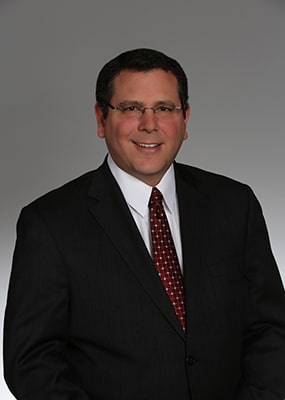
First and foremost, Sachs Sax Caplan would like to wish everyone a happy and healthy new year! We know that this is a time for many people to make resolutions for the upcoming year ahead. One resolution that many Associations may wish to make in 2023 is revisiting their rules and regulations. Many Associations may have outdated rules and regulations that need to be updated and amended. Other Associations may have been lax in their enforcement of rules and may need to republish their rules and restrictions, so that they may be properly enforced on a moving-forward basis. If you are an Association, whether a Condominium Association or Homeowners Association, that has not been uniformly enforcing your rules and regulations, Florida law allows you to go through a republication process whereby you send a letter to the community republishing the rule or restriction that has not been properly enforced which will allow you to enforce those rules on a moving-forward basis. If you have any such restrictions, whether they are in your rules and regulations or in your Declaration of Covenants or Declaration of Condominium, it is important to avoid selective enforcement issues in the future, you republish this rule or restriction and “clean the slate” on a moving-forward basis. You can send the rules and regulations or other restrictions out to the community with a cover letter stating that the Board of Directors, on a moving-forward basis, will be enforcing these restrictions. Any pre-existing violations that were not enforced would likely need to be grandfathered, but at least this will allow the Associations to be in a better position to enforce these revitalized rules and regulations and other use restrictions. Also, this may be a good time for Associations to evaluate existing rules and regulations and to determine whether they need to be updated or amended. It is important to remember that, while rules and regulations may be adopted by the Board without needing a membership vote (unless the documents specifically require a membership vote), if you are adopting or amending rules and regulations that regulate the use of Condominium...

Surplus funds are extra monies above the foreclosure judgment amount held by the Clerk of Court following a sale in a foreclosure case. The plaintiff in such cases (either the Bank or the Association) may only bid up to its judgment amount at the sale. If the winning bid is higher than the judgment amount, the difference between the winning bid and the judgment amount are the surplus funds. For example, a Bank obtains a judgment for $300,000.00 representing the past-due principal, interest, late fees, attorney’s fees, and costs associated with the mortgage foreclosure lawsuit it filed. At a subsequent public sale, the Bank bids up to its $300,000.00 judgment but the property is so highly coveted that it attracts additional bidding by private parties. These third parties push the bidding well above $300,000.00 and the winning bid is ultimately, for example, $450,000.00 from third-party bidder, John Doe. In this scenario, the surplus funds are $150,000.00. The Clerk will hold the $150,000.00 in surplus funds in the court registry until a court order instructs the Clerk as to how to distribute the money. A few weeks following the sale, the Clerk will issue the certificate of disbursement which itemizes how much money, if any, is held in the court registry from the foreclosure sale. All parties to the foreclosure case will receive a copy of the certificate of disbursement and will be put on notice of any surplus fund amounts. If there’s no surplus funds, then the plaintiff Bank, in our example, is the winning bidder at the mortgage foreclosure sale. Junior lienholders in such a mortgage foreclosure case such as second mortgages, and condominium and homeowners associations claiming unpaid assessments, may and should also file claims against the surplus funds. The sooner a claim is filed, the sooner it may be set for hearing before the judge. Of course, often there may not be enough surplus funds to pay all junior lienholders in full, so time is of the essence. A junior lienholder who gets in front of the judge first may get paid on its claim if no other...
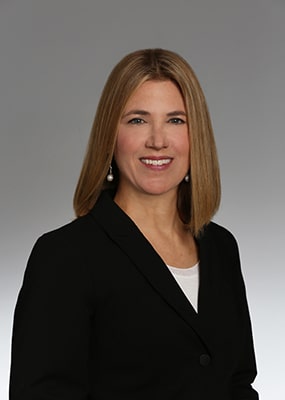
Hiring an attorney isn’t really something that most people think about, until they suddenly need one. That means the majority people don’t really know what to look for when they do have to find an experienced attorney in South Florida. If you find yourself searching for one of the best lawyers in West Palm Beach and beyond, here are 5 things you may want to keep in mind: 1) One of the first questions you may have is where to find a great attorney in South Florida. With all the TV ads, billboards and website banners, it can seem overwhelming know where to start and whom to trust. That’s why I suggest to start by asking your friends, family, and colleagues. See if they know or can refer you to someone they have had a positive interaction with. Now you may think, “But I don’t want them to know my personal business.” We understand. Maybe you’ve met an attorney and have their business card tucked away somewhere. Dust off that business card and give them a call. If they can't help you, ask them to refer you to someone who can. 2) The next thing you may be wondering is if your needs will be better served by a big firm or a small firm. Here at Sachs Sax Caplan, we have over 30 attorneys and 32 support staff, offering you all the resources of a big firm while also being able to give you and your case the personal attention that comes with a boutique firm, which we consider as the best kind of firm to solve all legal of your needs. 3) Now that you’ve found some attorneys with whom you are interested in meeting, the next step is to schedule a time to determine who is the right fit for you and your needs. Think of this meeting as somewhat of an interview and, as you would for any interview, do your due diligence beforehand. Check out their websites and read about their firms’ previous cases to help you get a sense of who they are and how...
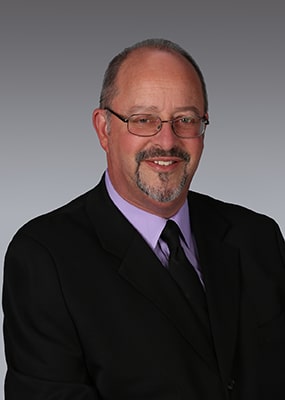
Warren Buffett once said, “Risk comes from not knowing what you’re doing.” As we approach the end of 2022, we thought it appropriate to see if we can reduce the risk surrounding the management and operation of condominium and homeowners’ associations by focusing on five (5) relatively recent advances in Association Law that may have a profound effect on how these communities operate. These five (5) areas are: assessment collection letters, association registration, alternative dispute resolution, fining and/or suspension of use rights, and, last, but certainly not least, reserves. As to collections, Sections 718.121(5) and 720.3085(3)(d), Fla. Stat., now require that condominium and homeowners’ associations may not require the payment of attorneys’ fees related to a past due assessment unless the association (or its managing agent) provides the unit owner with a notice letter giving the owner thirty (30) days within which to make payment. A rebuttable presumption that this letter has been sent is created by the execution of an affidavit by an officer, director, agent, or licensed community association manager attesting to the same. Thus, if your association plans on attempting to recover its attorneys’ fees from a unit owner for collection of past due assessments, the thirty (30) day letter and affidavit are a necessity. As part of Senate Bill 4-D, all condominium and cooperative associations with buildings three (3) stories or higher are required to report certain information to the Division of Florida Condominiums, Timeshares, and Mobile Homes, on or before January 1, 2023. The information that is required includes, among other things: the name of the association, the number of buildings that are three (3) stories or higher in height, and the total number of units in those buildings. Condominium and cooperative associations may register at http://www.myfloridalicense.com/DBPR/condos-timeshares-mobile-homes/building-report/. Since 1992, when a disagreement arose between a condominium association and a unit owner as to an issue that met the statutory definition of “dispute,” they were required to submit to what is called mandatory non-binding arbitration with the Florida Department of Business and Professional Regulation. Disagreements between associations and owners in homeowners’ associations, on the other hand, had...

As Community Association attorneys, something we've been asked often lately is whether associations may hold their meetings strictly by Zoom or any other video conferencing or virtual process. The answer is Florida law does allow videoconferencing and provides the ability to do so for both members and board meetings. For board meetings, the statute provides that directors may participate in any meeting virtually or by remote communication, including voting on board matters, and that remote communication is deemed to be “in person” participation. Therefore, board meetings can be held in person, completely virtual, or a hybrid of both. Importantly, the statute requires that the directors attending remotely must be able to be heard by everyone else attending the meeting. For virtual meetings, this is easily accomplished as all participating in the videoconferencing can hear each other when they speak. For in-person meetings, it is necessary for a two-way speaker to be utilized so that any directors participating remotely can be heard by all in attendance. As to members meetings, Florida law also provides that members may participate remotely. In this respect, the statute requires the board to adopt guidelines and procedures to verify that each person deemed present and authorized to vote remotely, is a member or proxy holder. Once those procedures and guidelines are established, members may participate in meetings remotely, are deemed to be present “in person” at the meeting and may vote remotely. Once the procedures and guidelines are adopted, members may participate in a meeting through Zoom or other videoconferencing methods either on their laptops, or by phone. The key is to be able to identify that the people participating are actually members or their authorized representatives (proxies) who can participate on behalf of the members. This is critical because it ensures that quorum requirements are complied with at virtual meetings. When preparing the notice for a meeting, it is recommended that the notice specifies in advance whether the meeting is going to be strictly virtual or if it's going to be a hybrid, where some members are there in person and some are virtually attending. Then...

We at Sachs Sax Caplan want to welcome back all of the out-of-town residents who are now coming back down to South Florida after a summer respite elsewhere in the country. As Community Association attorneys, we would like to give you some brief pointers of things we recommend you do upon returning to the Tri County area. Start by checking your utilities to ensure they are all turned back on. Check for leaks by flushing all toilets and examining all doors and windows in your home. If you do detect any water leakage in those areas, communicate the problem to your association board and your property manager as soon as possible so they can be remediated expeditiously. Hopefully you won’t find any problems, however, whether you do or do not have any situation to report, you should contact your property manager or board of directors to inquire about what the board has done since the last time you've left. If you've not had electronic communication with them, you're going to want to ask specifically if there have been any special assessments passed or if there any special assessments planned. Determine whether there have been any large maintenance projects completed or in progress or if there are any plans for upcoming work. Projects like this may affect day-to-day operations in the community, and, of course, you will also want to know how any work done will impact the pocketbook that you have with your association. You should also be aware of the recent legislation passed in the state in response to the Surfside tragedy that involves stricter building safety requirements. One aspect of SB 4-D involves the funding of reserves for the continued maintenance and repair of condominium and co-op buildings three stories or larger that is now required to be in the budget. Historically, it is unlikely that your association has already prepared or adequately funded their reserves, and these large-scale projects are likely going to result in a special assessment. The sooner your association can plan and prepare, the less of an impact it will have on each owner. In...
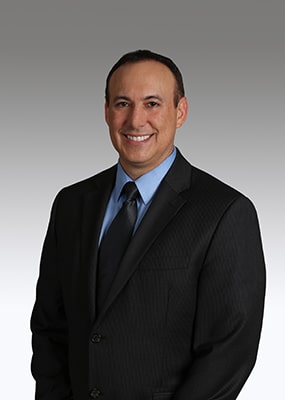
Benjamin Franklin famously said back in 1736 that “an ounce of prevention is worth a pound of cure.” Mr. Franklin’s saying was most certainly not meant to apply to Florida property owners associations as Florida was not even a state at the time but his advice can be seen as applicable to community associations insofar as service contracts are concerned because it is easier to prevent large costs and legal exposure to an association by sound contract language crafted or approved by an attorney at the start of a relationship with a vendor than to repair the damage that a poorly worded agreement that was simply signed on an association’s behalf without legal review has created. What do I mean by service contract? An important function of an association is to oversee essential services that vendors provide for the community such as landscaping, pest control, asphalt paving, and security. These services require written contracts which should include important terms that protect the association, particularly in the event that the vendor does not perform its side of the bargain or causes damage to a person or property. Why is the assistance of an attorney important in the review of service contracts? Perhaps most significantly, contract disputes can be expensive and time-consuming. And, such disputes are not always incorporated into the association’s annual budget which could put a lot of financial strain on the association and lead to unpopular special assessments. Also, the association can be stuck with a vendor that is doing a poor job. Some examples of where an attorney’s advice is important include making sure the vendor is contractually obligated to provide sufficient insurance and that there are well worded indemnification provisions. There are some nuances in Florida law regarding indemnity and all too often it seems that contracts created by vendors are one-sided and do not protect the association in the event for example that a third party is injured as a result of the vendor’s services. Also, contracts created by the vendor may be unclear or unfavorable to the association regarding the vendor’s responsibilities, the timeframe by which...

Sachs Sax Caplan, P.L. is proud to be recognized by The Florida Bar for our commitment to hiring and developing Board Certified Attorneys.
